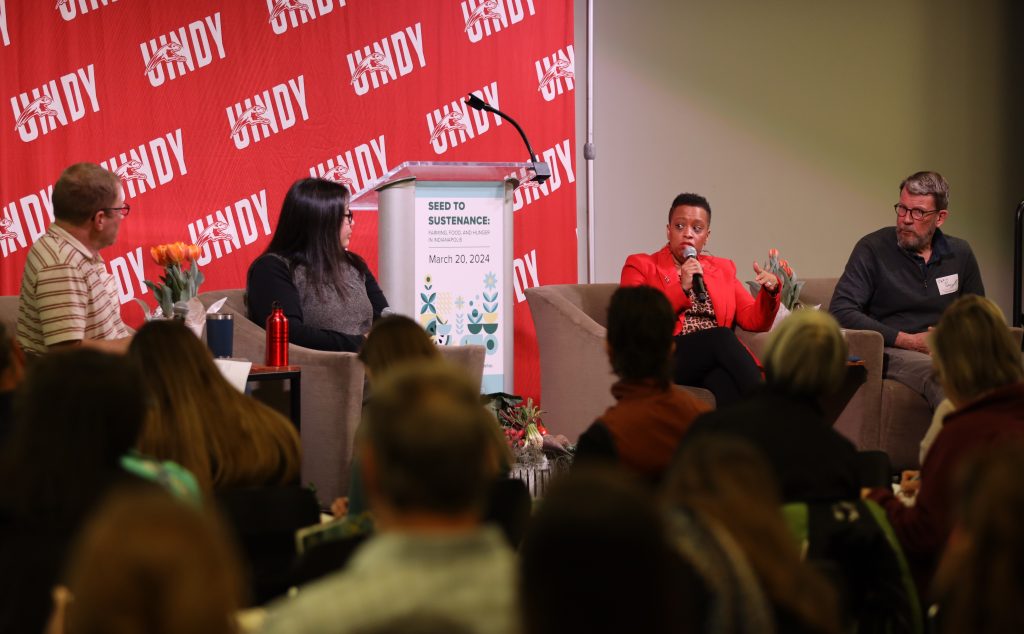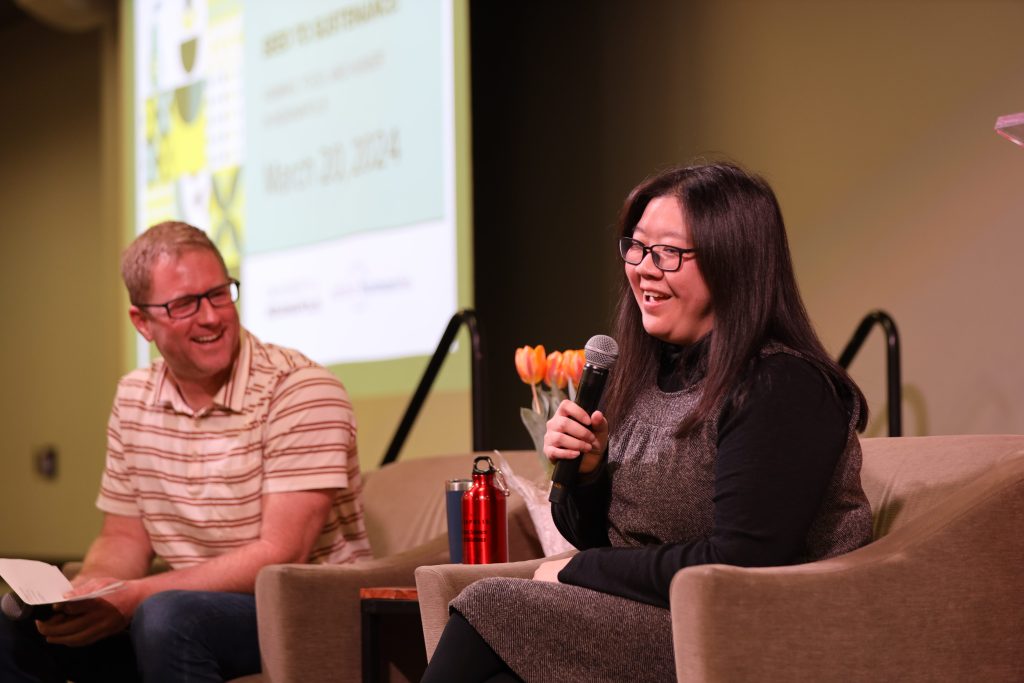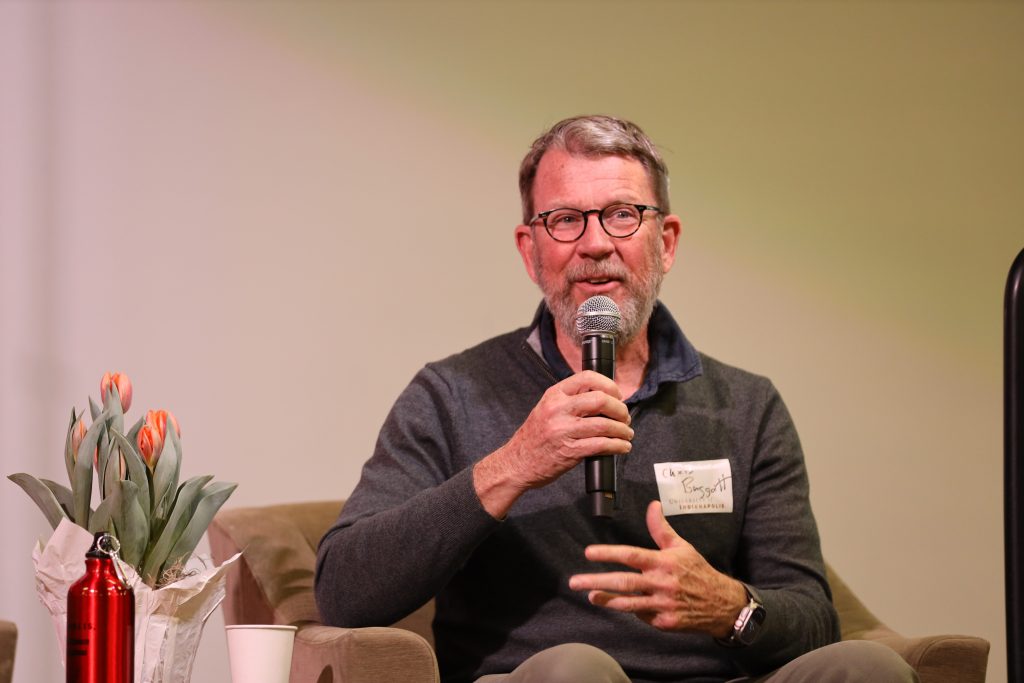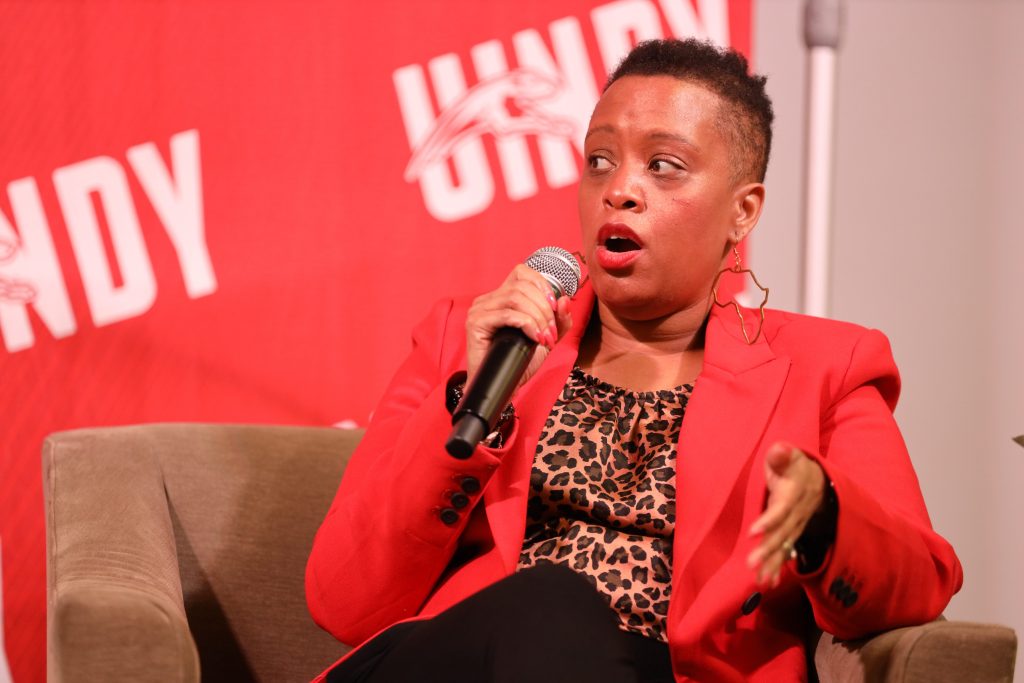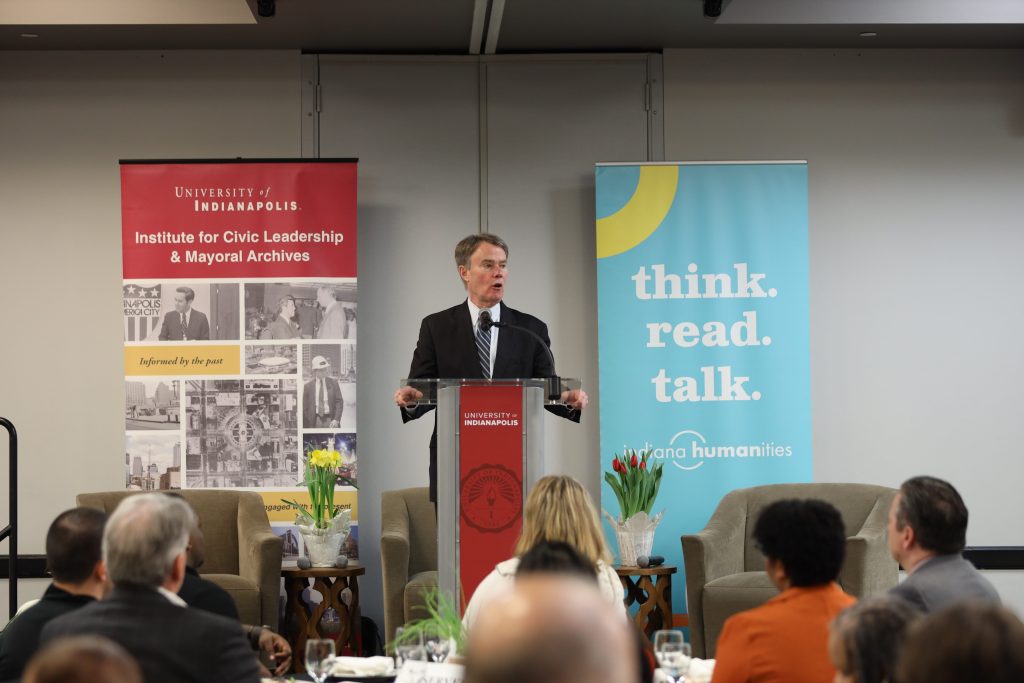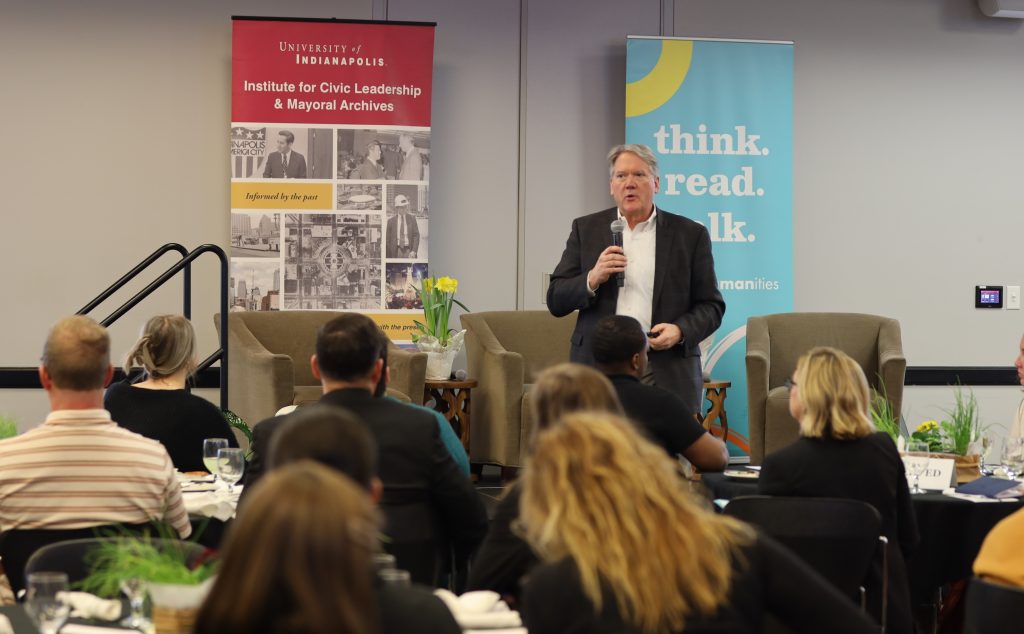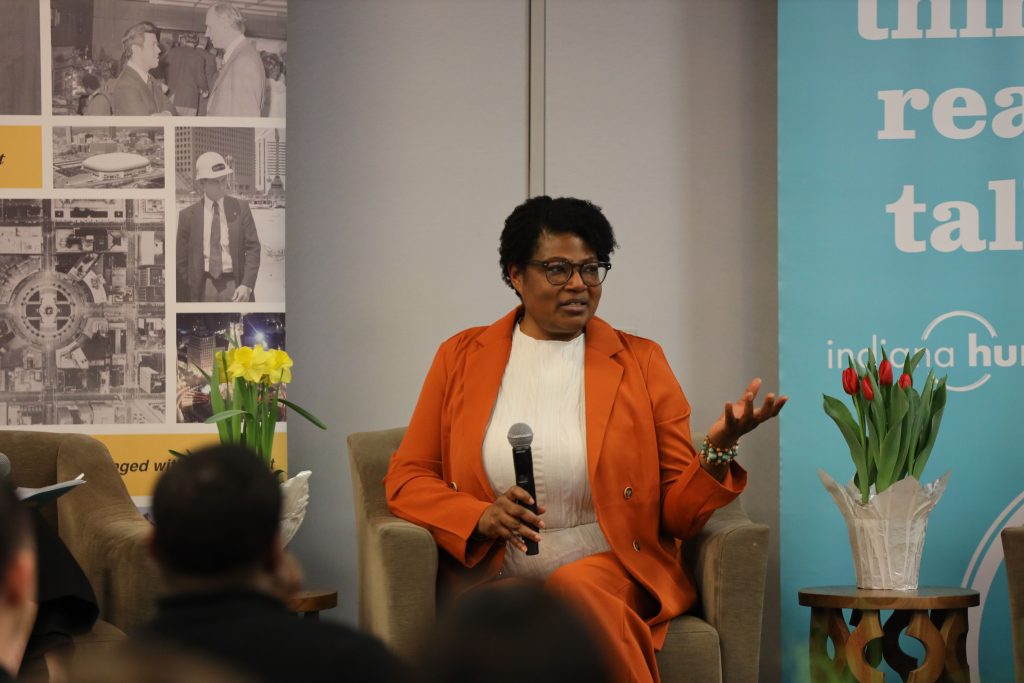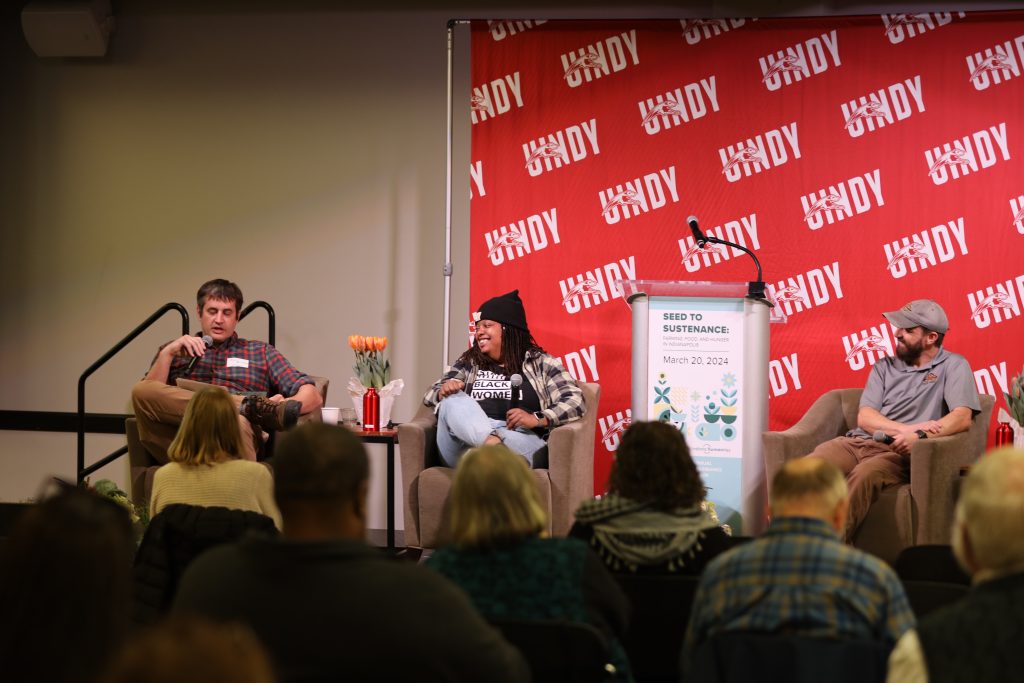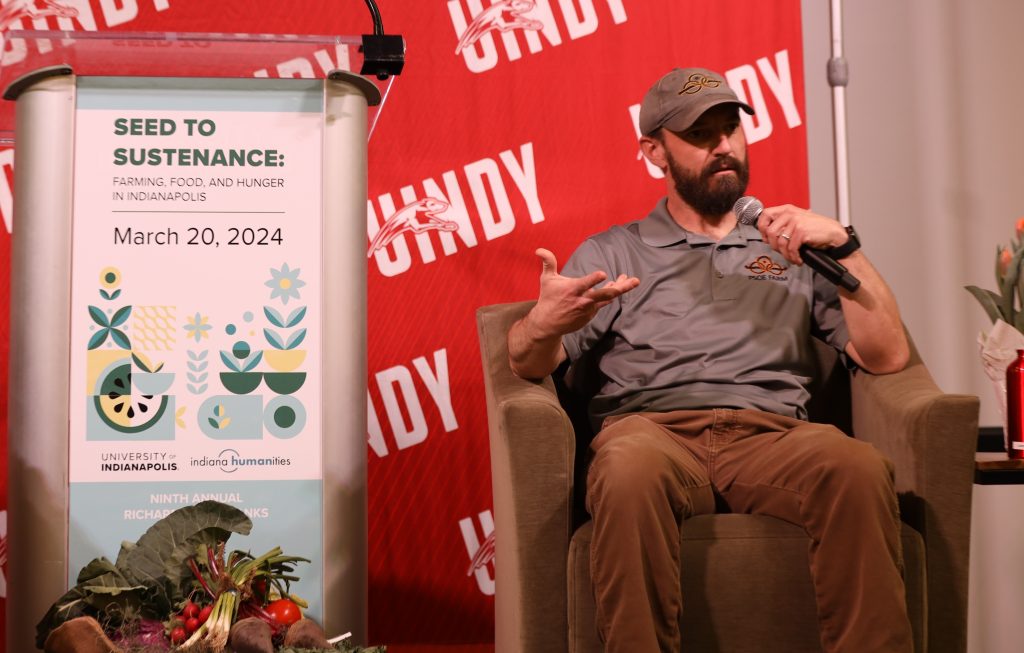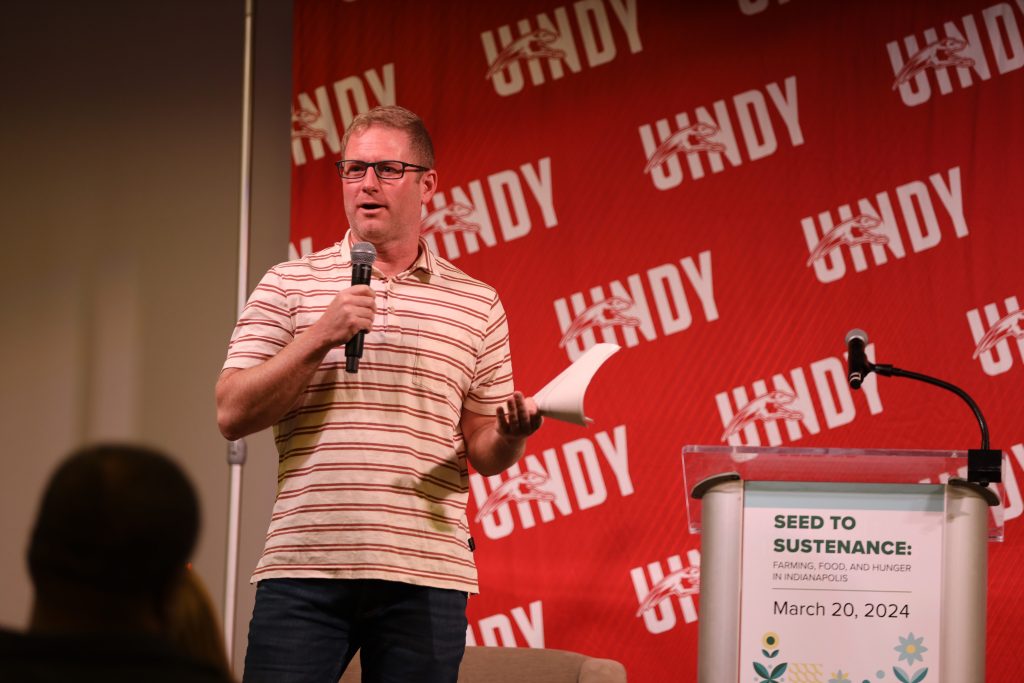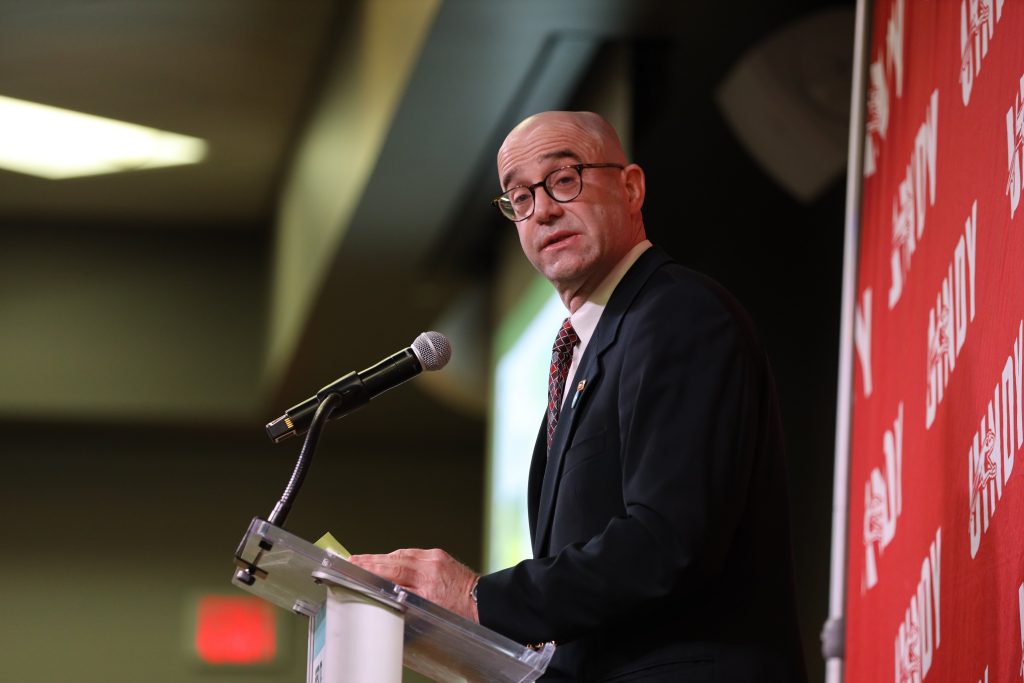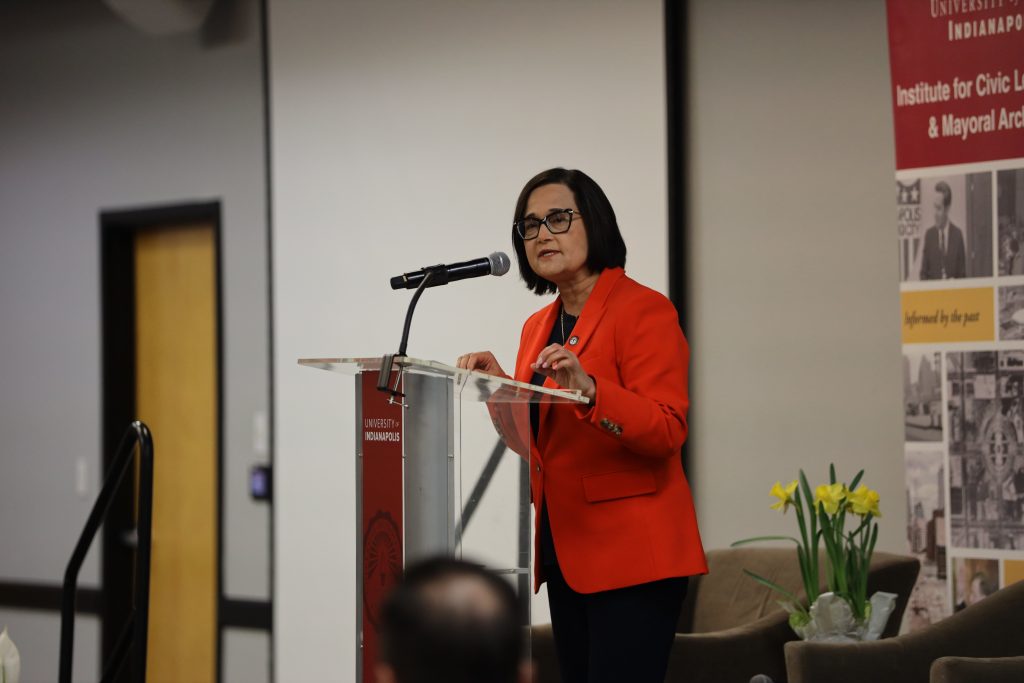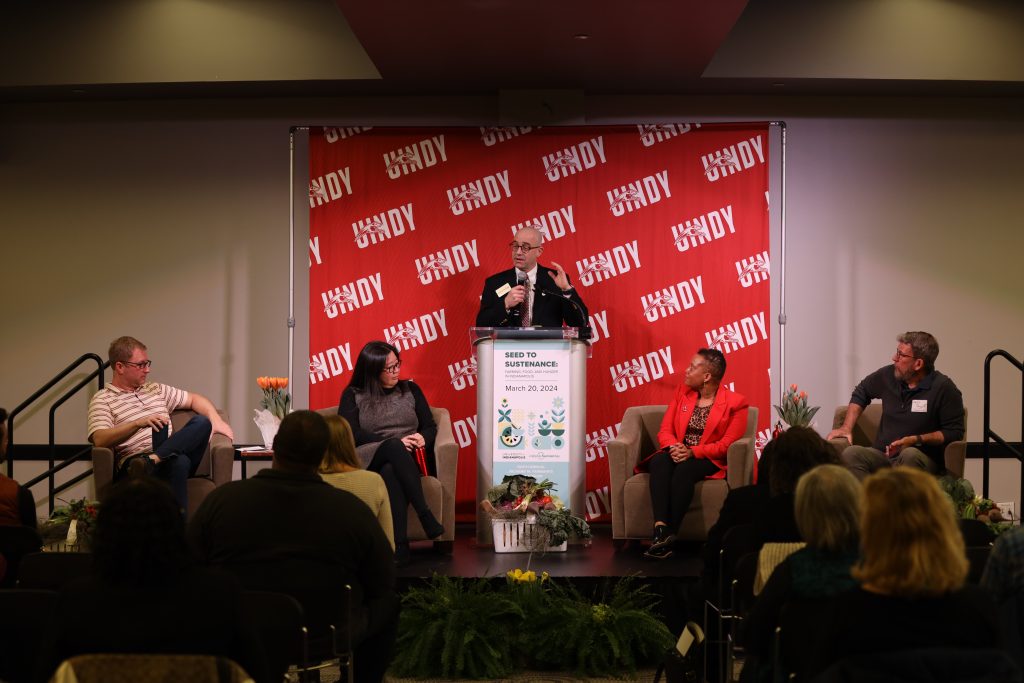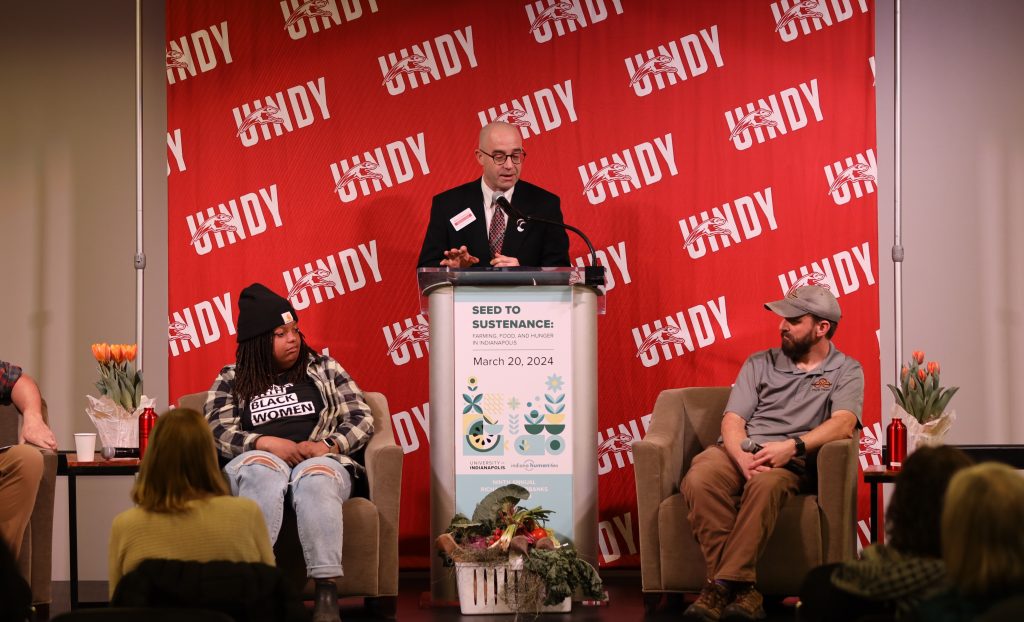UIndy, Indiana Humanities Explore Food Sourcing, Disparities, and Hunger in Indianapolis at Ninth Annual Richard M. Fairbanks Symposium
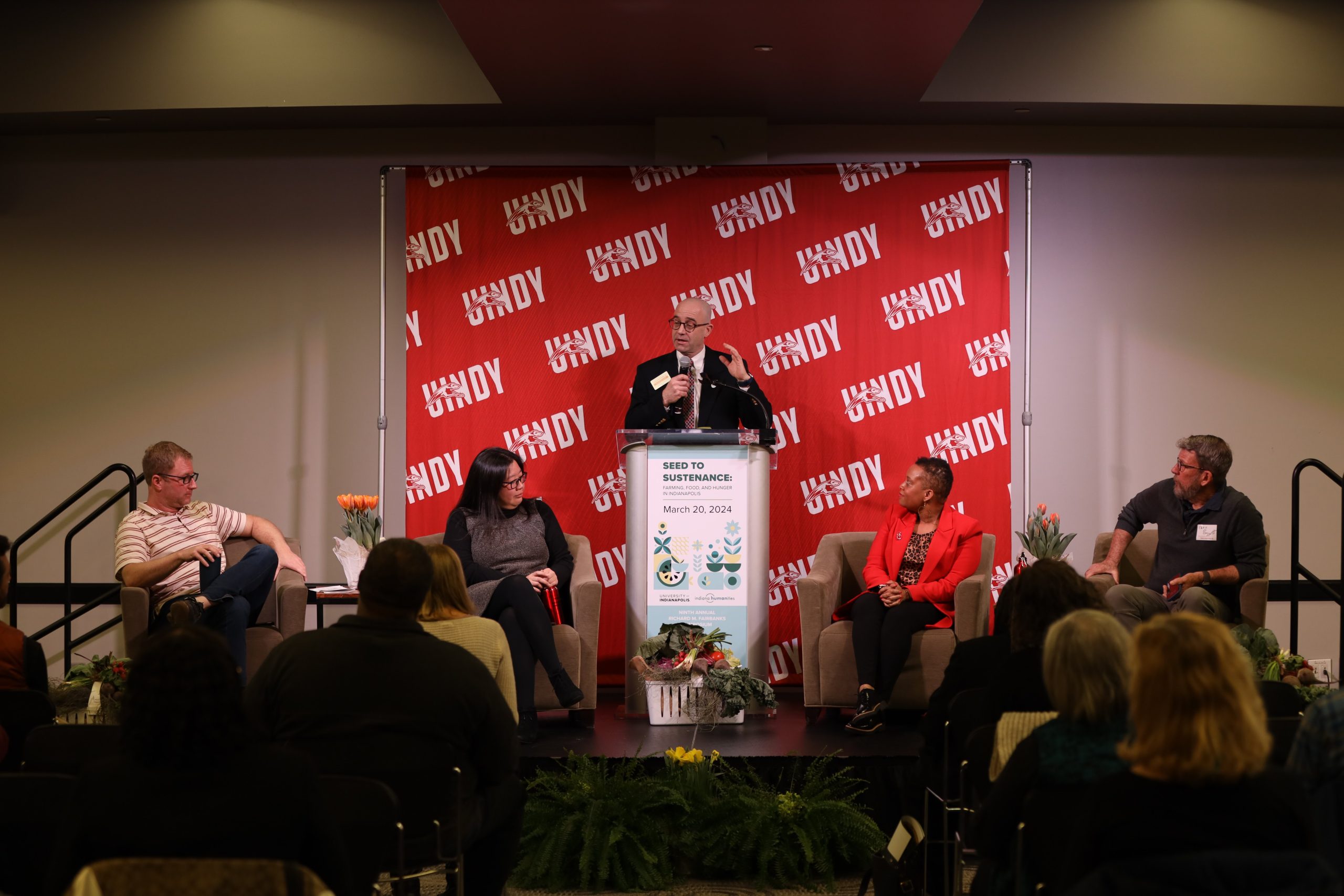
Written by Troi Watts
“We are living in an era of unprecedented need for people facing hunger.”
It is this hard truth that brought over 100 community members to the University of Indianapolis for the Ninth Annual Richard M. Fairbanks Symposium, hosted in partnership with Indiana Humanities. This year’s symposium, “Seed to Sustenance: Farming, Food, and Hunger in Indianapolis,” explored the multifaceted issue surrounding hunger in Central Indiana, from availability of nutritious and culturally-relevant foods to food sovereignty and beyond.
Panelists Connie Lee of the Garden Table, Candace Boyd Simmons of Flanner House, and Chris Baggott of ClusterTruck and Tyner Pond, opened the Symposium by asking “Where Does Your Food Come From?” with moderator Kelsey Timmerman, author of Where Am I Eating?
“What does local mean?” asked Timmerman. The question was sparked by the fact that suppliers will often label their produce as USDA certified, local or natural, or cage-free, but these terms can mean different things to different companies.
“Prior to my work with Flanner House, in grocery retail, ‘local’ meant ‘in the region,’” answered Boyd Simmons. “So while working for the largest traditional grocery store, I sought out local farmers, meaning farmers from Indiana, Illinois, and Ohio. But now, working with Flanner House, ‘local’ means grown in Indianapolis or in Marion County. That’s ‘local’ to me.”
Following this panel, attendees enjoyed a lunch prepared by UIndy Dining Services’s own Executive Chef Taylor Hignite, which appropriately featured a menu that was sourced entirely locally. UIndy President Tanuja Singh then took the stage to express her gratitude for the community’s participation on this universal topic and to introduce Indianapolis Mayor Joe Hogsett.
“It all comes back to food,” said Hogsett. “Childhood development, our education system, employability, the safety of our neighborhoods, the economic health and well-being of our entire city. These are all part of the discussion but they are all determined in no small measure by easy access to healthy food. Today’s discussion is foundational.”
The Symposium’s keynote speakers, Milele Kennedy, Director of the Division of Community Nutrition and Food Policy for the City of Indianapolis, and Fred Glass, President and CEO of Gleaners Food Bank of Indiana, built upon Hogsett’s comments with moderator Keira Amstutz, President and CEO of Indiana Humanities. It was during this keynote INconversation that Glass discussed the unprecedented need for people facing hunger and who those people are.
“Who are ‘the hungry’?” asked Glass. “A lot of people reference ‘the hungry,’ but there’s not ‘the hungry.’ Hunger isn’t a ‘them’ problem. Hunger is an ‘us’ problem. There are people on this campus; there are people in this building; there are people on this staff; there are people in your kids soccer league; that are food insecure.”
According to the USDA, one in seven Americans live in food insecure households.
In response to rising rates of food insecurity in Indianapolis, the first-ever Division of Community Nutrition and Food Policy was established. As its leader, Milele Kennedy serves as the principal advisor to the Mayor’s Office on all matters related to the food system, including food insecurity and access, in Indianapolis.
“How did this become such a crippling issue in our community?” asked Amstutz.
“One thing that we’re seeing is that, post-pandemic, our numbers are higher than ever,” answered Kennedy. “Which really goes to show that not only was there something lingering in the background pre-pandemic, no, that was already in place that we just didn’t want to recognize was impacting our community.
“Looking at these numbers today and thinking about how 30% of our households need food assistance; that’s everyone. That is such a significant number that it really says we need to make change. We’ve got to start doing some things differently to be able to make an impact.”
Kennedy and Glass’s keynote was followed by the Symposium’s second panel, “Equity and Access: How Do We Take Control Over What We Eat?” Panelists Danielle Guerin of Soul Food Project Indy, Chris Larson of Paramount School of Excellence, and Kevin McKelvey of the UIndy Department of English discussed their efforts to produce locally-sourced foods and support food access in their communities.
“About five years ago I started an urban farm here on the northside of UIndy’s campus,” said McKelvey. “I really see that work as public gardening, as a public art project, and as a third-space for students and community members to come. We grow throughout the season, and we give that food away on campus or to our local food pantries as well.”
Dr. Ted Frantz, Chair of the UIndy Department of History and Political Science and member of the Indiana Humanities Board of Directors, closed this year’s Symposium with a heartfelt thanks to the community and an excitement to see the day’s conversations culminate in real, positive impacts in Indianapolis’s communities.
“The Fairbanks Symposium is always one of the highlights of my year because it gives people from all walks of life the opportunity to see the big picture, to engage with each other, and to find solutions which can make a difference to Hoosiers,” said Dr. Frantz.
While the Symposium may be over, the poignant ideas and call for action will continue to inspire the Indianapolis community to address food insecurity in their neighborhoods for a long time to come.
You can read more about the 2024 Richard M. Fairbanks Symposium and its biggest takeaways in Indiana Humanities’s article, “Five Things We Learned During the 2024 Fairbanks Symposium: Seed to Sustenance.”
